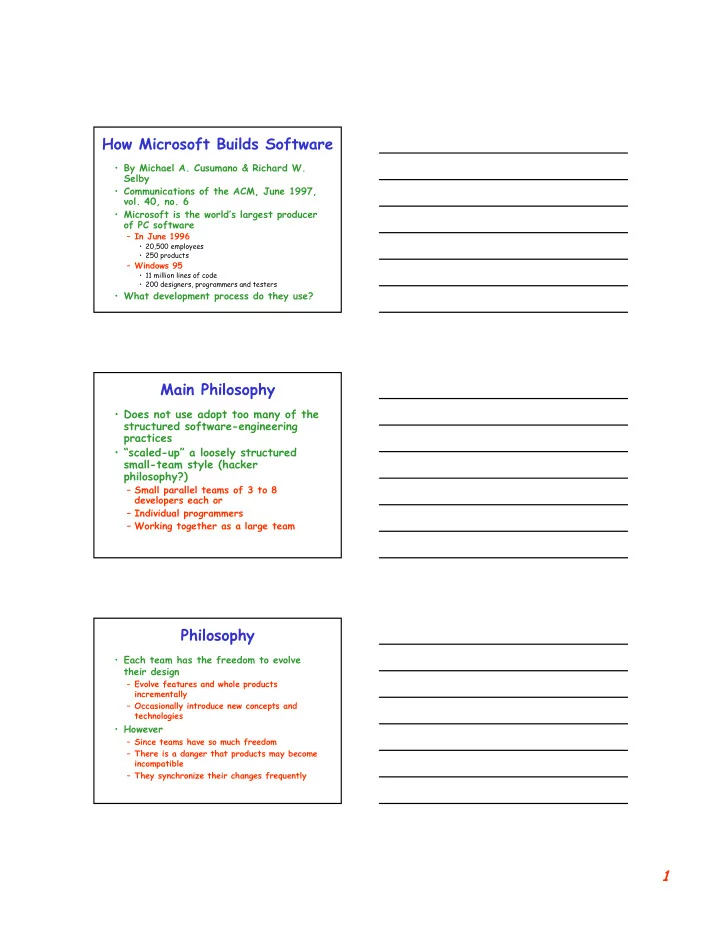

How Microsoft Builds Software • By Michael A. Cusumano & Richard W. Selby • Communications of the ACM, June 1997, vol. 40, no. 6 • Microsoft is the world’s largest producer of PC software – In June 1996 • 20,500 employees • 250 products – Windows 95 • 11 million lines of code • 200 designers, programmers and testers • What development process do they use? Main Philosophy • Does not use adopt too many of the structured software-engineering practices • “scaled-up” a loosely structured small-team style (hacker philosophy?) – Small parallel teams of 3 to 8 developers each or – Individual programmers – Working together as a large team Philosophy • Each team has the freedom to evolve their design – Evolve features and whole products incrementally – Occasionally introduce new concepts and technologies • However – Since teams have so much freedom – There is a danger that products may become incompatible – They synchronize their changes frequently 1
Synch-and-stabilize • Terms describing the process – “daily-build” – “nightly build” – “zero defect” – “milestone” • Build – Putting together partially completed or finished pieces of the software – Goal • To determine what works and what doesn’t – Done by completely recompiling the source code and executing automated tests Process: Planning Process: Development 2
Process: Stabilization � � � � Milestones in sync-and- stabilize (2-4 months) Milestones in sync-and- stabilize (2-4 months) 3
Milestones in sync-and- stabilize (2-4 months) Example: Excel/Graph Bug Data & Daily Builds Comparing Processes 4
Recommend
More recommend